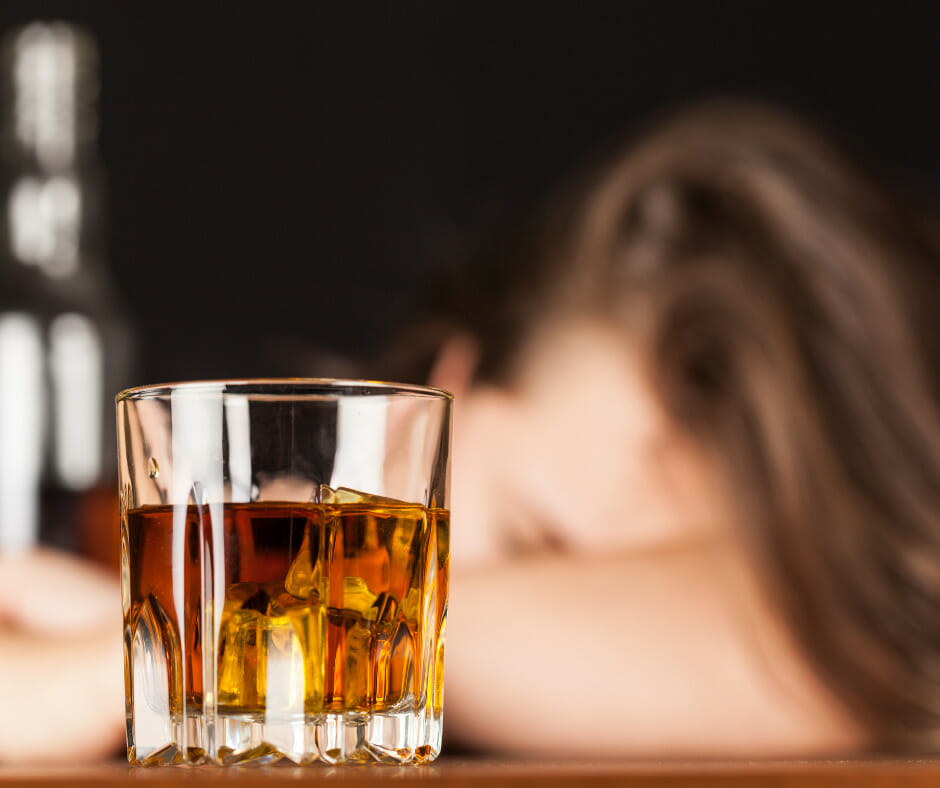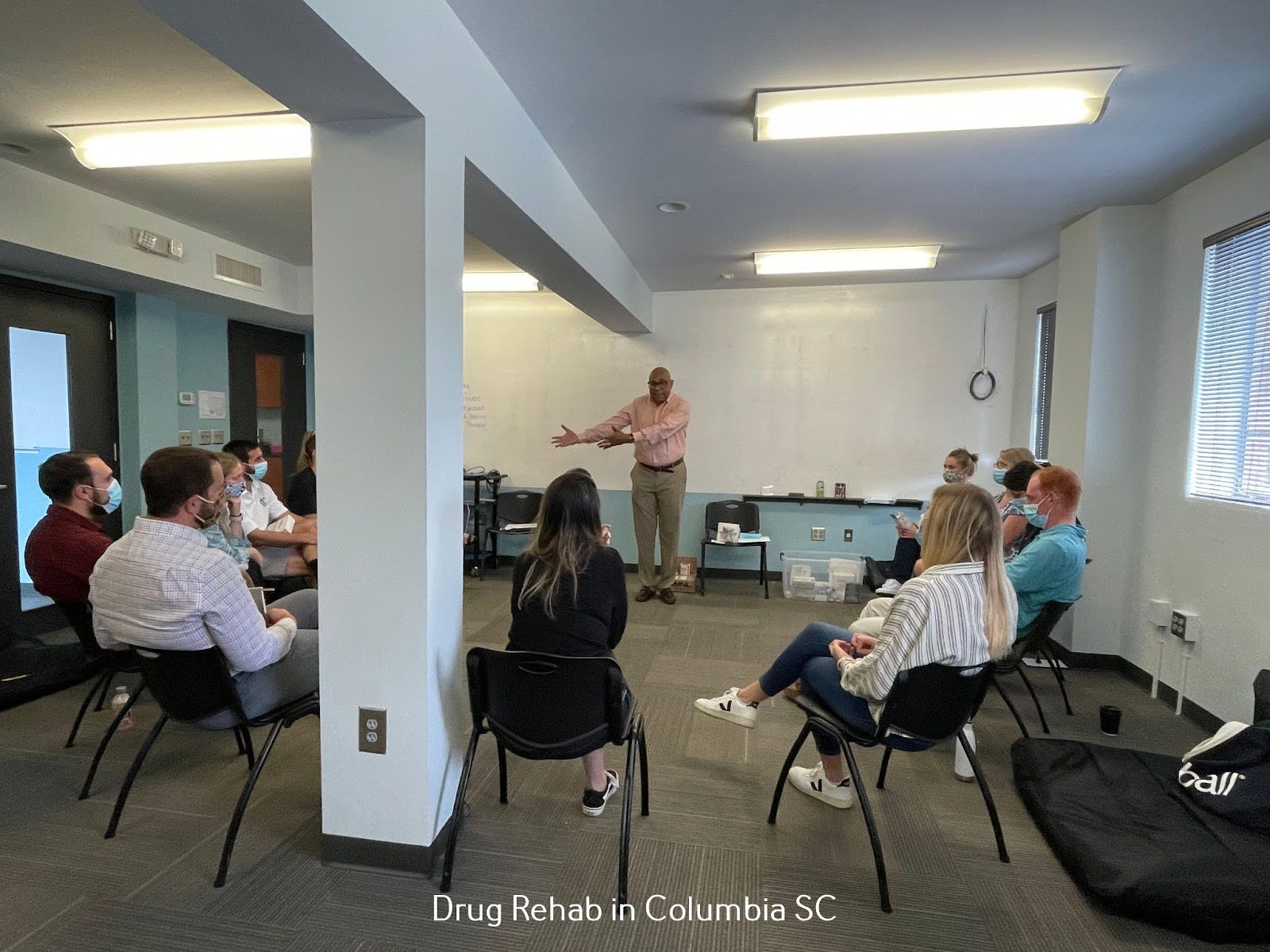Alcohol addiction is a serious and complex problem that affects millions of people around the world. It can lead to a range of negative social and health effects, including relationship problems, financial troubles, and physical and mental health issues.
Fortunately, a range of treatment options like Lantana Recovery treatment center offers are available to help individuals overcome alcohol addiction and regain control of their lives. Below we will explore the various rehab services and treatment options available for alcohol addiction, including inpatient and outpatient programs, detoxification, therapy, and support groups.
We will also discuss the importance of seeking help for alcohol addiction and the steps individuals can take to begin their journey to recovery.

What is Alcohol?
Alcohol, also known as ethanol, is a chemical compound commonly used as a recreational and social drink. It is a colorless and volatile liquid that is produced by the fermentation of sugar or starches by yeast.
The consumption of alcohol is a widespread and socially acceptable practice in many cultures, with millions of people around the world consuming it on a regular basis. However, alcohol addiction has become a significant national problem, with millions of people in the United States alone suffering from the negative consequences of excessive alcohol consumption.
According to the National Institute on Alcohol Abuse and Alcoholism, approximately 14.5 million adults in the US had an alcohol use disorder in 2019. This highlights the need for increased awareness and access to effective treatment options for those struggling with alcohol addiction.
Treatment Options for Alcohol Addiction
There are various types of drug treatments available for alcohol addiction, ranging from inpatient rehab to outpatient programs. Lantana Recovery treats alcohol addiction and can help find the most suitable treatment option depending on the severity of the alcohol addiction, the individual’s medical and psychological needs, and their personal preferences.
Inpatient Rehab
Inpatient rehab, also known as residential treatment, involves staying at a specialized facility for an extended period of time to receive intensive, 24/7 care for alcohol addiction. This type of treatment is typically recommended for individuals with severe alcohol addiction, who require close medical monitoring and support to manage withdrawal symptoms and prevent relapse.
Inpatient rehab programs offer a structured and supportive environment, including individual and group therapy sessions, medication-assisted treatment, and other holistic therapies. The length of stay can vary from a few weeks to several months, depending on the individual’s progress and needs.
Part Hospitalization Rehab
Part hospitalization programs (PHP) are a type of structured addiction treatment program that provides individuals with intensive therapy and support during the day, while allowing them to return home or a structured sober living at night. This type of rehab option is offered by Lantana Recovery and is ideal for individuals who require ongoing medical attention but do not need round-the-clock supervision.
PHP programs that treat alcohol addiction typically include individual and group therapy, medication management, and support groups. This type of program can be an effective option for those who need more intensive treatment than outpatient rehab but do not require inpatient care.
Intensive Outpatient Rehab
IOP is another type of outpatient treatment program that provides individuals with more flexibility than inpatient or PHP programs. IOP programs typically meet for several hours per day, several days per week, and offer a range of treatment options including individual and group therapy, medication management, and support groups.
This type of program is ideal for individuals who have completed a higher level of care, such as inpatient or PHP, or who require ongoing support to maintain their recovery.
Outpatient Rehab
Outpatient programs are less intensive than inpatient rehab and allow individuals to continue living at home while receiving treatment. This type of treatment is suitable for those with mild to moderate alcohol addiction, who have a stable support system at home and do not require round-the-clock medical monitoring.
Outpatient programs typically involve attending therapy sessions and support groups on a regular basis, either in-person or through telehealth, to learn coping skills and strategies to manage cravings and triggers. Outpatient programs can be structured, with a set number of hours per week, or flexible, allowing individuals to attend as needed.

Alcohol: Dependance vs. Addiction
Dependence on alcohol refers to the physical and psychological reliance on the substance to function normally. Individuals who are dependent on alcohol may experience withdrawal symptoms if they abruptly stop drinking or reduce their consumption. It’s always advised to seek medical supervision when dealing alcohol withdrawals.
Addiction, on the other hand, is a chronic and compulsive disorder characterized by the continued use of alcohol despite negative consequences. It involves a psychological and behavioral dependence on alcohol and often leads to an inability to control one’s drinking habits.
While dependence and addiction share some similarities, addiction is often considered a more severe and complex condition that can have significant long-term consequences. Dependence can be a component of addiction, but it is not always present. Reach out to Lantana Recovery if there is concern about your alcohol dependency or addiction. We are always here to help!
Alcohol Addiction Symptoms
Alcohol addiction is a serious disorder that can have a profound impact on an individual’s physical and mental health, relationships, and overall quality of life. It is important to be aware of the signs and symptoms of alcohol addiction in order to seek help and begin the journey towards recovery. Below are the physical symptoms and psychological symptoms of alcohol addition.
Physical Symptoms
Some physical symptoms of alcohol addiction include the following:
- Tolerance: Individuals who are addicted to alcohol may require increasing amounts of the substance to achieve the desired effect. This is known as tolerance and is a common sign of addiction.
- Withdrawal: When an individual stops drinking or reduces their alcohol intake, they may experience withdrawal symptoms such as tremors, sweating, nausea, and seizures. These symptoms can be severe and require medical attention.
- Shaking hands and tremors: Shaking hands and tremors, which are often associated with withdrawal symptoms.
- Sweating: Alcohol can increase body temperature and cause excessive sweating.
- Fatigue and lethargy: Alcohol can cause fatigue and lethargy, leading to a lack of motivation or interest in daily activities.
- Nausea and vomiting: Nausea and vomiting are common symptoms of alcohol addiction and can occur during withdrawal.
- Digestive problems: Long-term alcohol use can cause digestive problems such as gastritis and ulcers.
- Liver damage: Heavy drinking can cause liver damage, which can lead to serious health problems.
- Skin problems: Alcohol addiction can cause skin problems such as flushing and acne.
- Sexual dysfunction: Alcohol addiction can cause sexual dysfunction and impotence in men.
Psychological Symptoms
Below is a list of psychological symptoms of alcohol addiction:
- Cravings: Strong urges or desires to drink alcohol, even when it interferes with daily life.
- Anxiety and depression: Alcohol addiction can cause or exacerbate anxiety and depression.
- Mood swings: Mood swings are a common symptom of alcohol addiction and can cause sudden changes in emotions.
- Irritability and aggression: Alcohol addiction can cause irritability and aggression, leading to conflicts with friends and family members.
- Memory loss and confusion: Long-term alcohol abuse can cause memory loss and confusion, making it difficult to remember events or concentrate on tasks.
- Denial: Denial is a common symptom of alcohol addiction, as many people with the condition are unwilling to admit they have a problem.
- Social isolation: Alcohol addiction can cause social isolation and withdrawal from family and friends.
- Insomnia: Alcohol addiction can cause insomnia or other sleep disorders.
- Impaired judgment: Alcohol addiction can impair judgment and decision-making abilities, leading to poor choices and risky behaviors.
- Blackouts: Blackouts are a common symptom of alcohol addiction and can lead to memory loss or other problems.
It is important to seek medical attention if you are experiencing any of these symptoms. Alcohol addiction is a serious condition that requires professional treatment to overcome. Lantana Recovery can help you or your loved one address alcohol addiction.
Diagnosing Alcohol Addiction
Identifying alcohol addiction in someone else can be challenging, as individuals with alcohol addiction may try to hide their drinking habits or deny that they have a problem. However, there are several signs and symptoms that you can look out for that may indicate that someone is struggling with alcohol addiction. Here are some common signs:
- Increased tolerance: The person needs to drink more alcohol to feel the same effects as before.
- Withdrawal symptoms: The person experiences physical symptoms, such as tremors or nausea, when they stop drinking alcohol.
- Drinking in secret: The person may hide their drinking or sneak alcohol into non-alcoholic drinks.
- Neglecting responsibilities: The person may start neglecting their responsibilities at work, school, or home.
- Continuing to drink despite negative consequences: The person may continue to drink even if it is causing problems in their relationships, finances, or health.
- Changes in behavior: The person may become more irritable, aggressive, or withdrawn.
- Drinking in dangerous situations: The person may drink and drive, operate heavy machinery, or engage in other risky behaviors while under the influence of alcohol.
- Giving up activities: The person may stop engaging in activities they once enjoyed in order to drink alcohol.
If you notice any of these signs in someone else, it is important to approach the situation with empathy and offer support. Encourage the person to seek professional help for their addiction.

Alcohol Addiction Treatment Options in South Carolina
Alcohol addiction is a serious problem that affects individuals and families throughout South Carolina. Fortunately, there are several treatment options available to help those struggling with alcohol or any drug addiction. Here are three treatment options in different parts of the state:
Alcohol Rehab in Charleston
Charleston is home to several alcohol rehab centers that provide comprehensive treatment for alcohol addiction. Lantana Recovery treats alcohol addiction. Besides Lantana Recovery there are many well respected facilities like MUSC that offer a range of alcohol related services, including detoxification, individual and group counseling, and aftercare support.
The good rehabs centers in Charleston offer a variety of programs to help individuals struggling with alcohol addiction, including inpatient treatment, outpatient treatment, and intensive outpatient treatment. In addition to traditional counseling and therapy, the center also offers holistic therapies such as yoga, mindfulness, and art therapy. Call Lantana Recovery today if you or someone you love is struggling with alcohol addiction.
Alcohol Treatment for Greenville Residents
Greenville, SC has several alcohol treatment centers that provide care for individuals struggling with alcohol addiction. These facilities offer a range of treatment options, including outpatient and inpatient care, as well as medically supervised detoxification. Lantana Recovery extends alcohol rehab services to local Greenville residents.
Quality treatment centers in Greenville provide multiple treatment modalities for alcohol addiction like group and individual therapy and medication-assisted treatment for individuals struggling with alcohol addiction. In addition to medication, the centers provide a range of evidence-based therapies, including cognitive behavioral therapy, dialectical behavior therapy, and art therapy.
Alcohol Drug Treatment Services Extended to Columbia
Columbia, the capital city of South Carolina, also offers several alcohol drug treatment services. Lantana Recovery extends alcohol rehab for Columbia residents. Depending on the need, treatment options for available to those struggling with alcohol addiction can include ambulatory detoxification, counseling, and aftercare support. The rehab centers in Columbia also offer individual and group counseling, as well as specialized programs for adolescents with co-occurring mental health disorders.
Overall, there are a variety of treatment options for individuals struggling with alcohol addiction in Columbia. The quality treatment centers like Lantana Recovery will provide evidence-based care, as well as specialized programs to meet the unique needs of each individual.
Alcohol Addiction: Long Term Effects
Alcohol addiction can have a range of long-term effects on a person’s physical and mental health. Some of these effects may be reversible with sobriety, while others can be permanent.
One of the most significant long-term effects of alcohol addiction is damage to the liver. Alcohol abuse can cause inflammation and scarring of the liver, which can lead to conditions such as cirrhosis, liver cancer, and liver failure. These conditions can be life-threatening and may require a liver transplant to treat.
Alcohol addiction can also have a negative impact on the brain, leading to cognitive impairment and memory loss. Heavy drinking can cause a condition known as Wernicke-Korsakoff syndrome, which is characterized by confusion, coordination problems, and severe memory loss. This condition can be permanent and irreversible.
Other long-term effects of alcohol addiction may include high blood pressure, heart disease, stroke, and digestive problems. Chronic alcohol abuse can also weaken the immune system, making a person more susceptible to infections and illnesses.
Alcohol Treatment FAQs
Can I go to detox for Alcohol addiction?
Yes, detox is a common first step in treating alcohol addiction. Detoxification helps a person safely and comfortably withdraw from alcohol under medical supervision. This process usually takes several days to a week, which is often followed by a period of inpatient or outpatient treatment to address the underlying causes of addiction.
Can I attend inpatient rehab for Alcohol addiction?
Yes, you can attend inpatient rehab for alcohol addiction. Inpatient rehab is an effective treatment option for alcohol addiction. Inpatient rehab provides 24-hour medical supervision and support in a structured environment. This type of treatment typically lasts 30 days and involves a combination of individual and group therapy, support groups, and educational programs to help a person overcome addiction.
Does Lantana Recovery treat alcohol addiction?
Yes, Lantana Recovery treats alcohol addiction.
Can I enroll in outpatient rehab for Alcohol addiction?
Yes, you can enroll in outpatient rehab for treating alcohol addiction. Outpatient rehab allows a person to receive treatment while still living at home and attending work or school. This type of treatment typically involves several hours of therapy and counseling per week and may last several months or longer. Outpatient rehab is most effective for people with mild to moderate alcohol addiction.
Can I Overdose on Alcohol?
Yes, it is possible to overdose on alcohol. Alcohol overdose, also known as alcohol poisoning, occurs when a person drinks a large amount of alcohol in a short period of time. Symptoms of alcohol overdose may include confusion, difficulty breathing, seizures, and loss of consciousness. Alcohol overdose can be life-threatening and requires emergency medical attention.
Final Thoughts on Alcohol Addiction Treatment
Alcohol addiction is a serious condition that requires professional treatment to overcome. With the right combination of therapy, medication, and support, individuals struggling with alcohol addiction can achieve long-term sobriety and improve their overall quality of life.
It’s important to remember that there is no one-size-fits-all approach to alcohol addiction treatment and that what works for one person may not work for another. Therefore, it’s essential to work with a qualified healthcare professional like Lantana Recovery to help develop a personalized treatment plan that meets your unique needs and goals.
With commitment, patience, and the right support, recovery from alcohol addiction is possible!






